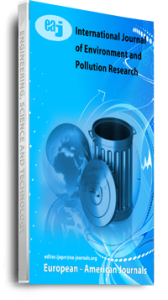This study examined well water quality and the incidence of water borne diseases especially diarrhoea in Emohua. To achieve this, health record data was obtained from the general hospital in Emohua. The laboratory procedure of physio-chemical parameters of pH, Turbidity, Total Hardness, Iron, lead and magnesium of well water samples randomly collected among the eight villages of Emohua such as Isiodu, Rumakunde, Rumuche, Mgbuitanwo, Oduoha, Mgbueto, Rumuohia and Elibrada was done and how they relate to the incidence of diarrhea. The multiple regression technique was used to examine the nature of the relationship which exists between well water quality parameters and the incidence of water borne diseases. Findings shows that the pH values of water at Mgbuitanwo is (3.87) and Oduoha (3.51) were slightly acidic, while in Rumuche (6.05)and Rumakunde (6.08), the pH value were alkaline and suitable for consumption. In terms of total hardness, Rumuche (24.024mg/l), Rumuakunde (36.036mg/l) and Rumuohia (28.028mg/l) have slightly hard water. Only Oduoha (108.101mg/l) had moderate hard water. However iron was dictated in the underground water at Mgbueto with a value of 1.621mg/l. Mgbuitanwo had the highest prevalence of diarrhea disease. This is followed by Isiodu and Rumuakunde. The r2 statistics shows that the well water quality parameters of Total Hardness, pH, and magnesium accounted for 65.1% of the incidence of diarrhea in the study area. Specifically, well depth accounted for 39.1% of the pH values of well water and 23.1% of the total hardness of the water in the study area. Strong monitoring and evaluation of well water hygiene, proper construction of the wells as well as awareness creation among residents need due attention.
Keywords: Emohua, acidic, diarrhea, physio-chemical parameters, well water

